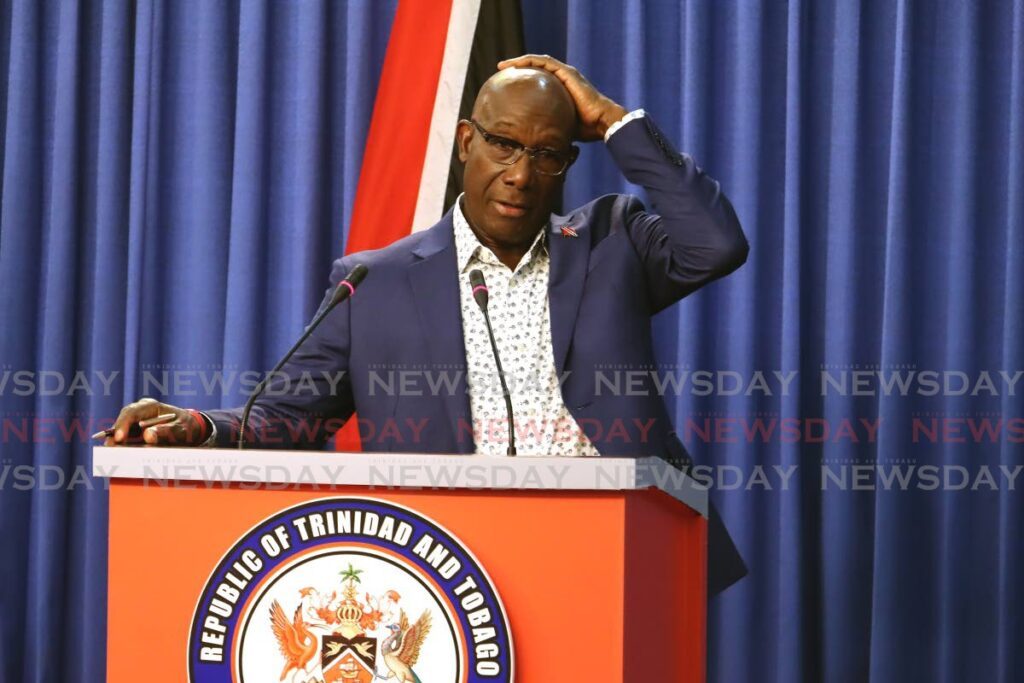Security expert: Urgent action needed against cyber attacks

With cyber attacks becoming more common in TT, there is a need to urgently strengthen measures to combat the new and evolving trend of criminality.
In an interview with Newsday last week, Shiva Parasram, an enterprise, risk and security consultant with almost a decade of experience with malware and ransomware, said he is noticing an "astounding" increase in local information being sold on the dark web.
This, he said, does not paint an optimistic picture of the country's digital landscape.
"I'm seeing a lot of companies in the Caribbean and Trinidad where you have e-mail addresses and passwords being stolen and published on dark web forums," he said.
"You go on these marketplaces and they have many groups selling information but I've noticed an astounding uptick, and I was just about to go on LinkedIn and make a post out to the public: no matter what company you're from, just let everybody change passwords immediately.
"It's bad, it's pretty bad, and I expect that in the coming weeks, months, 2024 is going to be a pretty terrible year for companies where malware is concerned."
The Office of the Attorney General, TTPost, Courts, the Telecommunications Services of TT (TSTT) and the South West Regional Health Authority were all recent victims of cyber attacks and resulting disruptions. In 2020, the ANSA McAL group was attacked, followed by the Massy Group in 2022.
Newsday asked the police for information on the number of cyber attacks reported to the cyber crime unit and is awaiting the data.
Parasram said these repeated incidents could weaken customer confidence in local businesses. He admitted, like sceptics, that he too does not use his credit card on local-based websites for transactions.
President of the TT Chamber of Industry and Commerce Kiran Maharaj also believes these incidents negatively affect customer confidence.
"Because while we're saying to everyone, get on the e-commerce platforms, when these things happen, and you see your credit card statement and you know you didn't make that payment, it will shake us a bit," she told Newsday on Monday morning.
She said the chamber was "concerned" about the prevalence of these attacks and was especially worried about their impact on small and medium enterprises which may not be able to protect against the attacks.
Acknowledging it's not an issue unique to TT, she said the silver lining in the recent hacking incidents is that they did not go undetected.
"I don't think we should ignore that fact. The truth is that we have been able to see where they're coming from and that we can actually take some form of action," she said.
Speaking at a post-Cabinet media briefing on Monday afternoon, the Prime Minister acknowledged the recent proliferation of cyber attacks and agreed urgent action is needed. "Especially as we become more and more dependent on the digital age offerings, it is a matter of urgency for us to return to prioritising the legislation that will deal with the environment of cyber-matics, if you may call it that," he said.
"So that cyber security and a whole new suite of criminal offences need to be identified and codified. And I expect that the Minister of Digital Transformation and the Attorney General will get that before the Cabinet as quickly as you can to ensure that we do have the deterrent effect, to the extent that there is deterrence that can be had, and in the event that the population can do anything to ameliorate it, that they have the legislative authority and support for doing that."
Rowley said digital systems are deeply embedded in the economy and cannot be abandoned.
This was also Maharaj's view. She believed instead of abandoning the country's digital transformation push, steps should be taken to mitigate cyber threats, even on a personal level.
"So what we need to do is, we need to continue to adopt the technology, recognise where the weaknesses are and work towards strengthening them. Because as I said, the fact that we've been able to detect them is positive. These people were not able to get away with it. We were able to see what happened and take corrective action. So I think that alone is something that sends a positive signal."
Last week, ANSA McAL CEO Anthony Sabga III called for legislation to prevent companies from paying ransoms in these attacks. Sabga argued that this would deter the attacks by withholding the reward for the criminal act.
"Yes, the data might still be published but at least it still adds a little bit of protection somewhere," Parasram said.
Maharaj also agreed with this suggestion, saying without it blackmail becomes legal.
"I think that it is something that has to be done. Otherwise what you're really doing is you're legalising a blackmailing scheme, and that's not something we want to do," she said.
Additionally, she said larger enterprises should share their knowledge after attacks with the business community to help others prevent similar attacks.
"I think information-gathering collectively may be able to assist all businesses because then we will be able to have a better idea of exactly how they're doing this. And who knows, we might be able to actually hold the perpetrators to pay for what they've done."
She said there was also a role for the Ministry of Digital Transformation in this collaborative approach.


Comments
"Security expert: Urgent action needed against cyber attacks"